10 African Civilizations More Amazing Than Ancient Egypt
Unknown to most people, hundreds of smaller kingdoms have popped up throughout Africa’s history, with some eventually growing into powerful empires. These vast nations united Africa, managed wealthy trade routes, and controlled a potluck of cultures.
10 Axum Empire
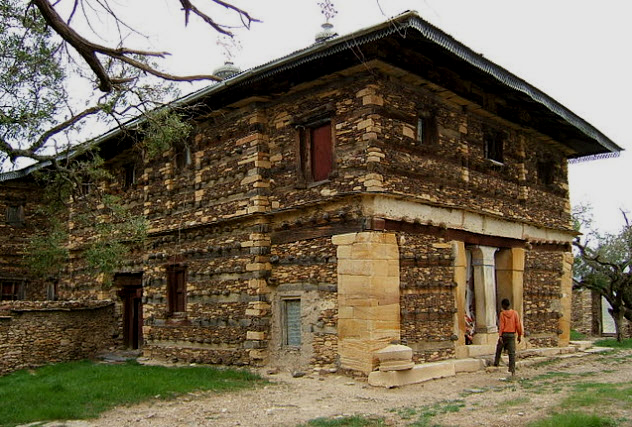
While a Christian revolution was occurring in Europe, a powerful kingdom emerged on the African continent. In present-day Ethiopia, the Axum Empire became one of the largest markets of northeastern Africa with its epic trading and naval strength. As traders from this country were going past the Nile River and into Alexandria, Axum dominated the coast of the Red Sea until the seventh century.
Besides influencing other superpowers in Africa, Europe, and Asia, this empire created Ge’ez, Africa’s only original written script, and had throngs of foreign visitors. One Persian writer hailed Axum as “one of the four greatest powers of the world.” Still, little is known about this impressive African civilization.
9 Benin Empire
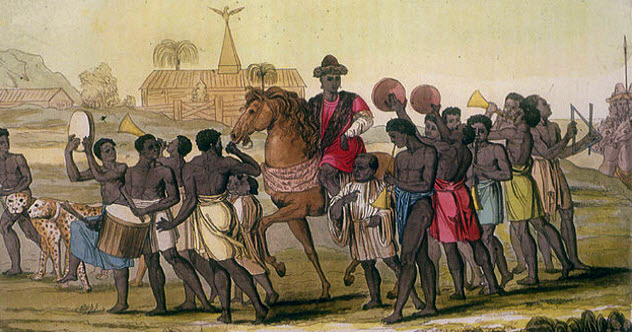
A unique settlement in what is now present-day Nigeria, the kingdom of Benin began when the Edo people cut down trees in the West African rain forest. By the 1400s, the little settlement had developed into a mighty kingdom.
The rulers of Benin, called the Oba, had an unusual taste for brass in their stunning palaces. The Benin people also used brass in artwork, statues, and plaques depicting gory battle scenes.
As for trading, Benin found wealth due to its location near the Niger River, which allowed merchants to trade with African kingdoms in the north. On the south end of the empire was the Atlantic Ocean, which permitted ships to exchange goods such as coral beads, pepper, and leopard skins. European trade commenced during the 14th century.
The Benin Empire came to an end when the British invaded to take Benin’s resources and burned the empire to the ground.
8 Kingdom Of Ghana
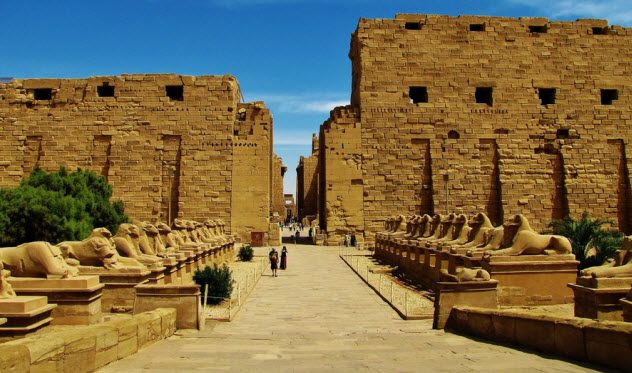
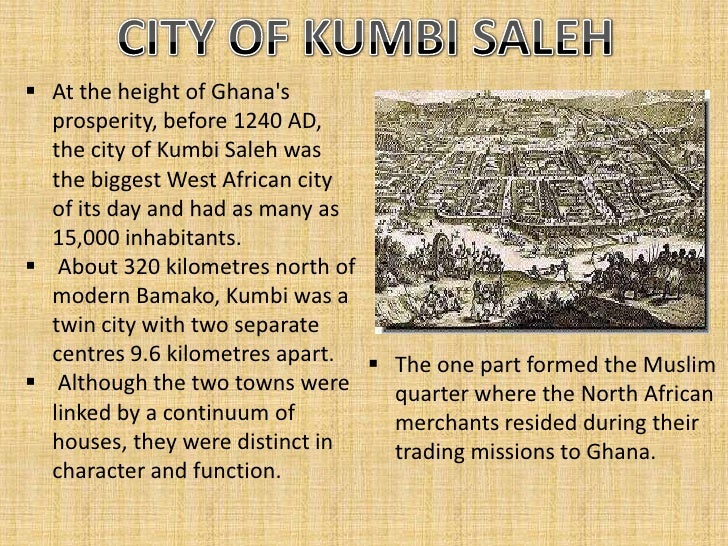
Ancient Ghana, which sat on an immense gold mine, was so rich that even its dogs wore collars made of the precious metal. With strategic planning, powerful leaders, and an abundance of natural resources, Ghana soon became another big African influence.
Trading with Europeans and North Africans, Ghana imported books, cloth, and horses in exchange for gold and ivory. Salt was also in high demand. Arab businessmen often struggled for months to reach the kingdom and trade.
If someone was accused of breaking the law in Ghana, that person was forced to drink an acrid blend of wood and water. If he threw up the mixture, he was considered innocent. Otherwise, he was considered guilty and punished by the king.
Despite holding off many invasions, Ghana eventually collapsed in 1240. Isolated from trade and weakened by its rivals, the kingdom was absorbed into the growing Mali Empire.
7 Mali Empire
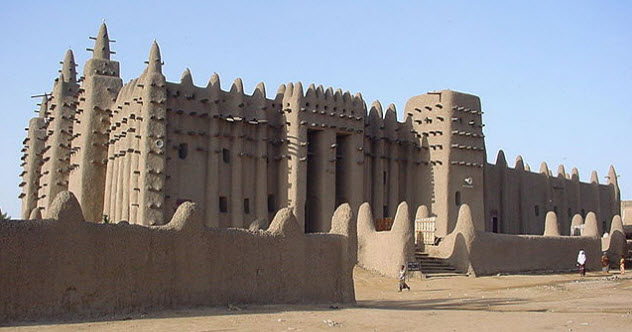
The Mali Empire was a major African civilization that thrived between the 13th and 16th centuries. Founded by a man named Sundiata Keita (aka the Lion King), the empire was located near present-day West Africa.
While the Lion King was an impressive ruler, the empire flourished the most under Mansa Musa, who holds the title of the richest man in history. His fortune was worth a whopping $400 billion—an amount that puts Bill Gates to shame. Musa also made Timbuktu, the Mali capital, the main center for education and culture in Africa, allowing scholars from all over the continent to come and study.
Like Benin, Mali was successful in trade because of its location by the Niger River. However, it was plundered by invaders from Morocco in 1593. This weakened the empire, and Mali soon ceased to be an important political entity.
6 Nok Civilization
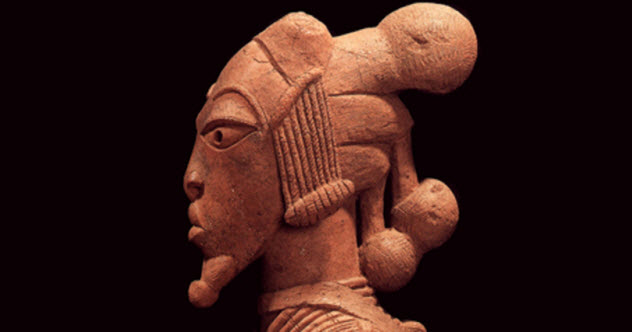
The first traces of this mysterious civilization were discovered in 1928 by a group of Nigerian tin miners. As archaeologists uncovered bits of pottery, rock paint, and tools, they were shocked to realize how advanced this previously unknown civilization was.
During their existence from 900 BC until AD 200, the Nok culture created a complex judicial system centuries before modern ones were invented. Using several different classes of courts, they dealt with matters such as theft, murder, adultery, and family disputes.
The Nok people were also the earliest makers of life-size, terra-cotta statues. Their statues depicted alien-looking people with long heads, almond-shaped eyes, and parted lips. The Nok were also advanced in metalworking, forging small knives, spear points, and bracelets.
In AD 200, the Nok population rapidly declined for no apparent reason. Famine, overreliance on resources, and climate change has all been proposed as explanations.
5 Kingdom Of Kush
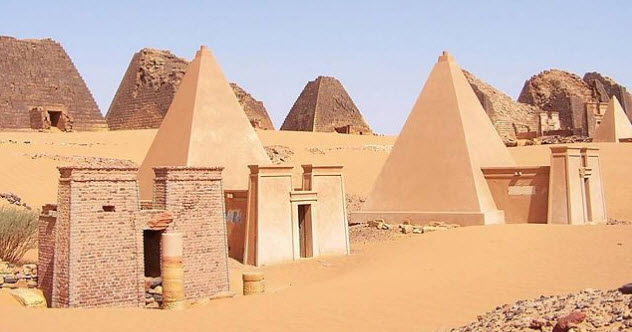
Relatively unknown outside of Africa, the kingdom of Kush was located in present-day Sudan. This civilization was strikingly similar to Egypt and once ruled like Egyptian pharaohs. The Kushytes also mummified their dead, built pyramids as burial grounds, and worshiped crazy gods. However, there were several key differences between the two cultures.
Iron had become a huge resource for Kush while the Egyptians were still discovering the wonders of this metal. Women also played a much bigger role in Kush society, and queens often succeeded the kings. In fact, one of the biggest pyramids in Kush was built to honor a female ruler.
Kush was also famous for its archers, who were often depicted in artwork. However, it’s theorized that their culture declined after Kush was invaded by Ezana from Axum and then taken over by a new society called the X-Group (aka the Ballana culture).
4 Songhai Empire
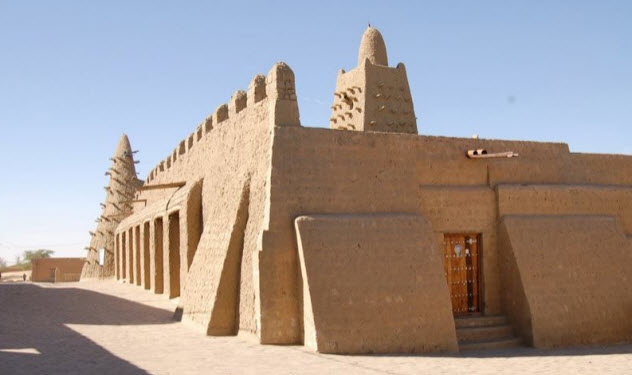
The Songhai Empire spanned thousands of miles across much of Western Africa. Lasting nearly 800 years, the kingdom was considered one of the greatest empires in the world from the 15th to the 16th centuries.
As with other African civilizations, Songhai derived most of its wealth from trading—which was extremely safe due to the 200,000-person army placed along its provinces. Several thousand cultures were under its control, all held together by a centralized government bureaucracy. A new currency was also created, which allowed thediverse cultures to blend and unite.
The size of this empire was its downfall, with its enormous territory too difficult to control. Songhai tumbled into civil war, and by the end of the 16th century, the once-mighty empire had fractured into smaller, squabbling kingdoms.
3 Land Of Punt
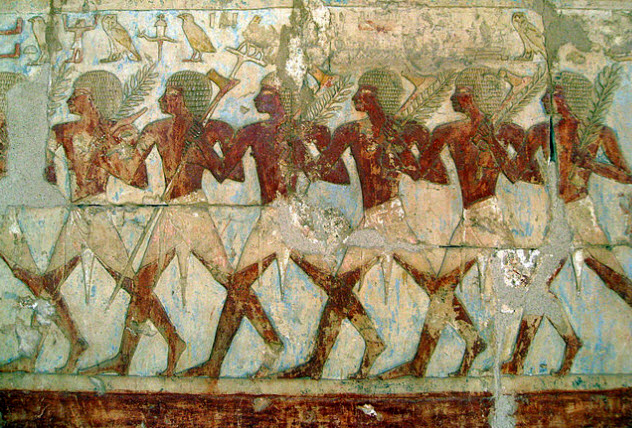
Located in present-day Somalia, Punt was considered the Atlantis of Africa. Unlike most African civilizations, the people of this “land of the gods” were described as having dark red complexions and long hair, and citizens lived in reed huts suspended on stilts above the water.
Trading missions between Egypt and Punt were common, including the first-documented flora exchange when Queen Hatshepsut traded trees during her famous expedition. All sorts of goods were exchanged with Punt—from incense and ivory to human dwarfs and pygmies.
Although the exact location of Punt is still debated, it was described as being lush and green. Sailors most likely reached it by traveling through the Red Sea or drifting down the Nile in small sailing boats. Many people believe that Punt had a huge influence on Egyptian culture—from their literature to their religion. Despite this, some historians question whether Punt even existed.
2 Zulu Empire
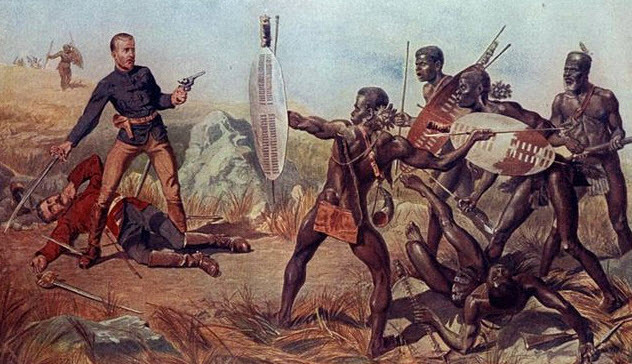
The rise of the Zulu Empire wouldn’t have happened without wedlock. The start of the kingdom was spurred by Shaka Zulu, the illegitimate son of Chief Senzanganoka. After dodging several attempted murders and bloody family disputes, Shaka became chief of the Zulus. Using his groundbreaking military tactics, Shaka helped the empire rise to its rich and famous heights.
The Zulu Empire’s biggest accomplishment stems from being one of the most feared African civilizations during the colonial period. By introducing the iklwa spear and creating the bull formation, Shaka trained his warriors so well that they eventually defeated the British invasion.
The Zulu grew into a powerful but violent empire. However, by the 1900s, it had been absorbed into the Cape Colony. Today, parts of Zulu form the modern country of South Africa.
1 Ancient Carthage
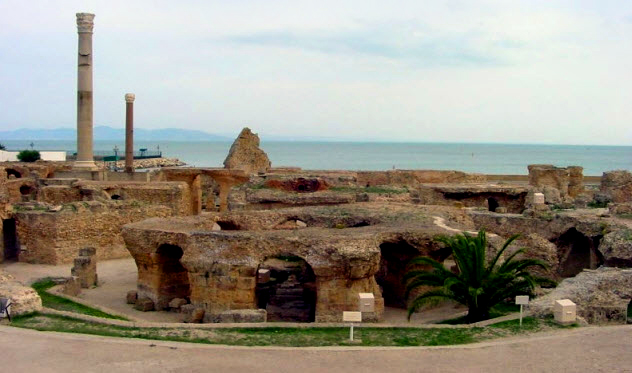
An early Phoenician settlement, the ancient city-state of Carthage was located in modern-day Tunisia and covered much of the Mediterranean. Its strategic placement—and abundance of trade—allowed Carthage to grow quite wealthy.
As the Carthage people were extremely skilled in furniture crafting, Punic cushions, mattresses, and beds were an expensive luxury. At one point, their Roman rivals unsuccessfully attempted to copy their designs.
Carthage also created an intricate system of governmental checks and balances, wrote a constitution, and managed an extensive library. Unfortunately, most of their literature was destroyed or given as gifts to Numidian kings. Only one book remains—a manual on agricultural technique that was translated into Greek.
Eventually, Carthage was burned and plundered by the expansion of the Roman Empire. However, the Carthage city-state left an indelible mark as a rich trading empireand a powerful commercial force in Africa.
10 African Civilizations More Amazing Than Ancient Egypt - Listverse
Unknown to most people, hundreds of smaller kingdoms have popped up throughout Africa’s history, with some eventually growing into powerful empires. These vast nations united Africa, managed wealthy trade routes, and controlled a potluck of cultures.
10 Axum Empire

While a Christian revolution was occurring in Europe, a powerful kingdom emerged on the African continent. In present-day Ethiopia, the Axum Empire became one of the largest markets of northeastern Africa with its epic trading and naval strength. As traders from this country were going past the Nile River and into Alexandria, Axum dominated the coast of the Red Sea until the seventh century.
Besides influencing other superpowers in Africa, Europe, and Asia, this empire created Ge’ez, Africa’s only original written script, and had throngs of foreign visitors. One Persian writer hailed Axum as “one of the four greatest powers of the world.” Still, little is known about this impressive African civilization.
9 Benin Empire

A unique settlement in what is now present-day Nigeria, the kingdom of Benin began when the Edo people cut down trees in the West African rain forest. By the 1400s, the little settlement had developed into a mighty kingdom.
The rulers of Benin, called the Oba, had an unusual taste for brass in their stunning palaces. The Benin people also used brass in artwork, statues, and plaques depicting gory battle scenes.
As for trading, Benin found wealth due to its location near the Niger River, which allowed merchants to trade with African kingdoms in the north. On the south end of the empire was the Atlantic Ocean, which permitted ships to exchange goods such as coral beads, pepper, and leopard skins. European trade commenced during the 14th century.
The Benin Empire came to an end when the British invaded to take Benin’s resources and burned the empire to the ground.
8 Kingdom Of Ghana


Ancient Ghana, which sat on an immense gold mine, was so rich that even its dogs wore collars made of the precious metal. With strategic planning, powerful leaders, and an abundance of natural resources, Ghana soon became another big African influence.
Trading with Europeans and North Africans, Ghana imported books, cloth, and horses in exchange for gold and ivory. Salt was also in high demand. Arab businessmen often struggled for months to reach the kingdom and trade.
If someone was accused of breaking the law in Ghana, that person was forced to drink an acrid blend of wood and water. If he threw up the mixture, he was considered innocent. Otherwise, he was considered guilty and punished by the king.
Despite holding off many invasions, Ghana eventually collapsed in 1240. Isolated from trade and weakened by its rivals, the kingdom was absorbed into the growing Mali Empire.
7 Mali Empire

The Mali Empire was a major African civilization that thrived between the 13th and 16th centuries. Founded by a man named Sundiata Keita (aka the Lion King), the empire was located near present-day West Africa.
While the Lion King was an impressive ruler, the empire flourished the most under Mansa Musa, who holds the title of the richest man in history. His fortune was worth a whopping $400 billion—an amount that puts Bill Gates to shame. Musa also made Timbuktu, the Mali capital, the main center for education and culture in Africa, allowing scholars from all over the continent to come and study.
Like Benin, Mali was successful in trade because of its location by the Niger River. However, it was plundered by invaders from Morocco in 1593. This weakened the empire, and Mali soon ceased to be an important political entity.
6 Nok Civilization

The first traces of this mysterious civilization were discovered in 1928 by a group of Nigerian tin miners. As archaeologists uncovered bits of pottery, rock paint, and tools, they were shocked to realize how advanced this previously unknown civilization was.
During their existence from 900 BC until AD 200, the Nok culture created a complex judicial system centuries before modern ones were invented. Using several different classes of courts, they dealt with matters such as theft, murder, adultery, and family disputes.
The Nok people were also the earliest makers of life-size, terra-cotta statues. Their statues depicted alien-looking people with long heads, almond-shaped eyes, and parted lips. The Nok were also advanced in metalworking, forging small knives, spear points, and bracelets.
In AD 200, the Nok population rapidly declined for no apparent reason. Famine, overreliance on resources, and climate change has all been proposed as explanations.
5 Kingdom Of Kush

Relatively unknown outside of Africa, the kingdom of Kush was located in present-day Sudan. This civilization was strikingly similar to Egypt and once ruled like Egyptian pharaohs. The Kushytes also mummified their dead, built pyramids as burial grounds, and worshiped crazy gods. However, there were several key differences between the two cultures.
Iron had become a huge resource for Kush while the Egyptians were still discovering the wonders of this metal. Women also played a much bigger role in Kush society, and queens often succeeded the kings. In fact, one of the biggest pyramids in Kush was built to honor a female ruler.
Kush was also famous for its archers, who were often depicted in artwork. However, it’s theorized that their culture declined after Kush was invaded by Ezana from Axum and then taken over by a new society called the X-Group (aka the Ballana culture).
4 Songhai Empire

The Songhai Empire spanned thousands of miles across much of Western Africa. Lasting nearly 800 years, the kingdom was considered one of the greatest empires in the world from the 15th to the 16th centuries.
As with other African civilizations, Songhai derived most of its wealth from trading—which was extremely safe due to the 200,000-person army placed along its provinces. Several thousand cultures were under its control, all held together by a centralized government bureaucracy. A new currency was also created, which allowed thediverse cultures to blend and unite.
The size of this empire was its downfall, with its enormous territory too difficult to control. Songhai tumbled into civil war, and by the end of the 16th century, the once-mighty empire had fractured into smaller, squabbling kingdoms.
3 Land Of Punt

Located in present-day Somalia, Punt was considered the Atlantis of Africa. Unlike most African civilizations, the people of this “land of the gods” were described as having dark red complexions and long hair, and citizens lived in reed huts suspended on stilts above the water.
Trading missions between Egypt and Punt were common, including the first-documented flora exchange when Queen Hatshepsut traded trees during her famous expedition. All sorts of goods were exchanged with Punt—from incense and ivory to human dwarfs and pygmies.
Although the exact location of Punt is still debated, it was described as being lush and green. Sailors most likely reached it by traveling through the Red Sea or drifting down the Nile in small sailing boats. Many people believe that Punt had a huge influence on Egyptian culture—from their literature to their religion. Despite this, some historians question whether Punt even existed.
2 Zulu Empire

The rise of the Zulu Empire wouldn’t have happened without wedlock. The start of the kingdom was spurred by Shaka Zulu, the illegitimate son of Chief Senzanganoka. After dodging several attempted murders and bloody family disputes, Shaka became chief of the Zulus. Using his groundbreaking military tactics, Shaka helped the empire rise to its rich and famous heights.
The Zulu Empire’s biggest accomplishment stems from being one of the most feared African civilizations during the colonial period. By introducing the iklwa spear and creating the bull formation, Shaka trained his warriors so well that they eventually defeated the British invasion.
The Zulu grew into a powerful but violent empire. However, by the 1900s, it had been absorbed into the Cape Colony. Today, parts of Zulu form the modern country of South Africa.
1 Ancient Carthage

An early Phoenician settlement, the ancient city-state of Carthage was located in modern-day Tunisia and covered much of the Mediterranean. Its strategic placement—and abundance of trade—allowed Carthage to grow quite wealthy.
As the Carthage people were extremely skilled in furniture crafting, Punic cushions, mattresses, and beds were an expensive luxury. At one point, their Roman rivals unsuccessfully attempted to copy their designs.
Carthage also created an intricate system of governmental checks and balances, wrote a constitution, and managed an extensive library. Unfortunately, most of their literature was destroyed or given as gifts to Numidian kings. Only one book remains—a manual on agricultural technique that was translated into Greek.
Eventually, Carthage was burned and plundered by the expansion of the Roman Empire. However, the Carthage city-state left an indelible mark as a rich trading empireand a powerful commercial force in Africa.
10 African Civilizations More Amazing Than Ancient Egypt - Listverse

 . It would be like if China was made by indians but now its just full of asians
. It would be like if China was made by indians but now its just full of asians

